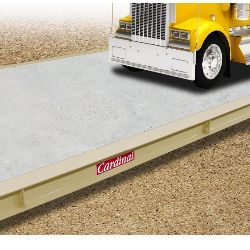Have you ever wondered why do we even need to weigh trucks? Or why do we even need weigh stations on the interstate highway? Weigh stations were created to enforce safety regulations for big trucks that you see on the highway. These truck scales allow each state to check the freight carrier’s compliance with fuel tax laws; to check weight restrictions; to check equipment safety and to check compliance with Hours of Service Regulations. A Truck scale is a large set of scales, usually mounted permanently on a concrete foundation, that is used to weigh entire vehicles and their contents. By weighing the vehicle both empty and when loaded, the load carried by the vehicle can be calculated. Weigh stations are regulated by individual state governments and therefore have vastly different requirements from state to state. They are typically operated by the state’s Department of Transportation (DOT) or Department of Motor Vehicles (DMV) in conjunction with the state highway patrol or state police, thus enabling enforcement of applicable laws. The federal maximum weight is set at 80,000 pounds.
Trucks exceeding the federal weight limit can still operate on the country’s highways with an overweight permit, but such permits are only issued before the scheduled trip and expire at the end of the trip. Overweight permits are only issued for loads that cannot be broken down to smaller shipments that fall below the federal weight limit, and if there is no other alternative to moving the cargo by truck. Permitted oversize trucks are often required to coordinate with the Departments of Transportation and law enforcement agencies of the transited states before the trip begins, as most states require oversize trucks to be escorted. Many states have weigh in motion technology that allow a continuous flow of truck weighing.

